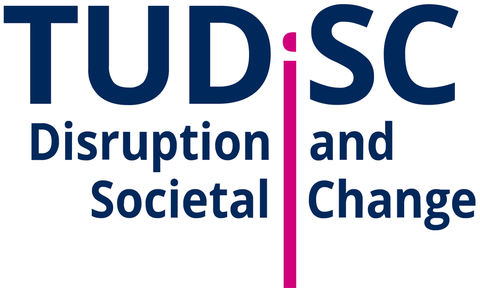Oct 12, 2022
Disruption and Agency from a Sustainability Perspective | Keynote Lecture by Julia Wittmayer (Drift Institute, NL) @ 2nd TUDiSC Conference "Systems of Agency in the Face of Disruption" | Nov 12
Disruption and Agency from a Sustainability Perspective
Keynote by Julia Wittmayer (Drift Institute, Rotterdam)
Opening Lecture of 2nd TUDiSC Conference
Moderated by Moritz Ingwersen
@November 12, 18:30, Heinz-Schönfeld Lecture Hall, Barkhausen-Bau, Helmholtzstr. 18, 01069 Dresden
Abstract Wittmayer: With the conference focusing on ‘disruption – agency – transformation’, this keynote will take one of these concepts as an entry point to reflect on the other two. From a sustainability transitions perspective, we will discuss the space for disruption and agency for addressing the current environmental and social crisis. We specifically take a closer look at different forms of agency in sustainability transitions and how these are reinvented and transformed through social innovations. We will also consider the close interlinkages between innovation, disruption and system reproduction in attempts of actors to influence transition dynamics and end with a reflection on the agency of research(ers) in and for sustainability transitions.
More on the conference theme
Systems of Agency in the Face of Disruption: Understanding disruption requires a critical engagement with systems of agency in crisis. Disruptive experiences are situated and embodied, tied to social actors whose habitual construction of the world is suddenly unsettled or defamiliarized. Confronted with a disruption of entrenched patterns of perception, knowledge, and practice, the capacity to act needs to be recalibrated. What happens to concepts of self-efficacy and agency when faced with feelings of powerlessness, despondence, and radical uncertainty?
Foregrounding agency in the context of disruption may begin by drawing attention to the mechanisms of power and priority that determine whose experiences of disruption are acknowledged, even normalized, while others remain invisible. Whoever has agency in defining the crisis and its underlying causes will also leave a mark on its imagined solutions. From precarious frontline activism to well-funded high-tech—who are the
actors that drive transformation and change? Who or what has the power to disrupt and who or what experiences disruption under conditions of the climate crisis, colonial warfare, or digital capitalism? Granted that no one ever acts alone, that agency is not a property of bounded individuals but a relational, emergent, and distributed phenomenon of a collective of actors that include humans and nonhumans alike, what would it mean to trace the interrelationships of actors involved in multiscalar and systemic processes of disruption and transformation? Disruptive events both expose and restructure distributions of power, knowledge, and
activity within complex systems whose infrastructural dimensions frequently remain opaque. Access to infrastructures—be they cognitive, social, technological, material, institutional, or political—is thus a key function of asserting agency and actively shaping transformation processes.
What are the passages that lead from critical awareness to transformative action, from conceptual knowledge to actionable knowledge? Closing the knowledge-action gap in activating wholescale transformation processes with the aim of shaping more sustainable and equitable societies may require a concept of disruptive agency. Which modes of action and forms of accountability are effective and necessary in catalyzing change? Which hegemonic patterns of perception, knowledge, and practice are in fact in need of fundamental disruption in order to effect change? Disruptive experiences can themselves be the cause for disruptive practices as radical, defiant, aesthetic, and material interventions from the margins or even the center. What is the role of the collective and the individual in such processes? What is at stake in examining the modalities and differences of moral, material, and legal agency in trying to understand disruption as the paradigmatic condition of systems in crisis?

